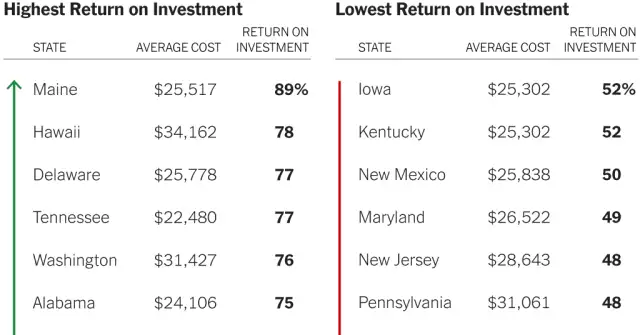How Are Interest Rates Determined and How Do They Work? - Total Mortgage
How Are Interest Rates Determined and How Do They Work? - Total Mortgage
Interest rates are a critical factor in determining the cost of a mortgage and play a significant role in the housing market. They are determined by various factors, including monetary policy set by the Federal Reserve, demand for mortgage-backed securities on the bond market, and the creditworthiness of the borrower.
The Federal Reserve, through its monetary policy, sets the discount rate, which is the short-term interest rate at which banks can borrow money from the Federal Reserve. When the Fed raises rates, the cost of borrowing money increases, and this can affect mortgage interest rates. For example, the Federal Reserve adjusted its monetary policy and set interest rates near 0% in response to the pandemic in March 2020. These were the rates at which banks could borrow money to lend to consumers. Mortgage rates are not directly tied to the Fed's rates, but the prime rate for mortgages will typically follow the Fed's actions.
The bond market also plays a role in determining mortgage interest rates. Mortgage-backed securities, also known as mortgage bonds, are sold on the bond market, and the demand for these securities can affect mortgage rates. When bond rates rise, mortgage rates tend to fall, and vice versa. The bond market affects mortgage rates because they attract the same type of investors—those looking for a fixed and stable return with less risk. Mortgage rates are usually lower than certain types of revolving credit but are higher than the prime rate.
Lenders also evaluate the creditworthiness of borrowers when determining interest rates. Factors such as credit score, loan-to-value ratio, loan term, interest rate type, and loan type can all affect the interest rate offered to a borrower. Borrowers with lower credit scores and higher loan-to-value ratios, for example, may be considered a higher risk and may be offered a higher interest rate.
Finally, broader economic factors such as inflation and the overall state of the economy can also affect interest rates. During periods of economic growth, high inflation, and low unemployment, interest rates tend to rise, while during an economic slowdown, lower inflation, and higher unemployment rates, rates tend to decline.
It's also worth mentioning that interest rates can be affected by the lender's policies and practices.
Here are a few examples of how interest rates can be affected by various factors:
A borrower with a credit score of 700 may be offered a lower interest rate than a borrower with a credit score of 600. This is because lenders consider borrowers with higher credit scores to be less risky and more likely to make on-time payments.
A borrower looking to purchase a home with a loan-to-value ratio of 80% may be offered a lower interest rate than a borrower with a loan-to-value ratio of 90%. This is because borrowers with a lower loan-to-value ratio are considered to be less risky, as they have more equity in the home.
A borrower choosing a 15-year fixed-rate mortgage may be offered a lower interest rate than a borrower choosing a 30-year fixed-rate mortgage. This is because shorter-term loans generally have lower interest rates and lower overall costs.
A borrower applying for a conventional loan may be offered a different interest rate than a borrower applying for a government-backed loan such as an FHA loan or a VA loan. This is because rates can vary significantly by the type of loan product and have distinct eligibility requirements.
During a period of high inflation and economic growth, interest rates may be higher compared to a period of low inflation and economic downturn.
Also, some lenders may offer lower interest rates than others, depending on their policies and practices. It's recommended to shop around and compare rates from different lenders to find the best option.
Here are a few recommendations for consumers looking to get the best mortgage interest rate:
- Improve your credit score: A higher credit score can help you qualify for a lower interest rate. Take steps to improve your credit score by paying off outstanding debts, disputing any errors on your credit report, and avoiding applying for new credit in the months leading up to your mortgage application.
- Make a larger down payment: A larger down payment can lower your loan-to-value ratio and make you a more attractive borrower to lenders, which can result in a lower interest rate.
- Consider a shorter loan term: Shorter-term loans, such as a 15-year fixed-rate mortgage, generally have lower interest rates than longer-term loans like a 30-year fixed-rate mortgage.
- Compare rates from multiple lenders: Interest rates can vary significantly from lender to lender, so it's important to shop around and compare rates from multiple lenders to find the best option.
- Choose a fixed-rate mortgage: Fixed-rate mortgages generally have lower interest rates than adjustable-rate mortgages, which can be subject to rate increases.
- Understand the different types of loans: Rates can vary significantly by the type of loan product you choose. Conventional loans, non-conforming loans, and government-backed loans are all different and have distinct eligibility requirements. It’s important to understand the pros and cons of each loan type and compare them before making a decision.
- Be mindful of the overall economic situation: Interest rates are affected by the overall economic situation and the Federal Reserve monetary policy. It's advisable to follow the interest rate trends and the economic news.
Keep in mind that these recommendations are general and may not apply to every individual. It's important to consult with a financial advisor or a mortgage professional to understand the specific requirements and options available for you.





